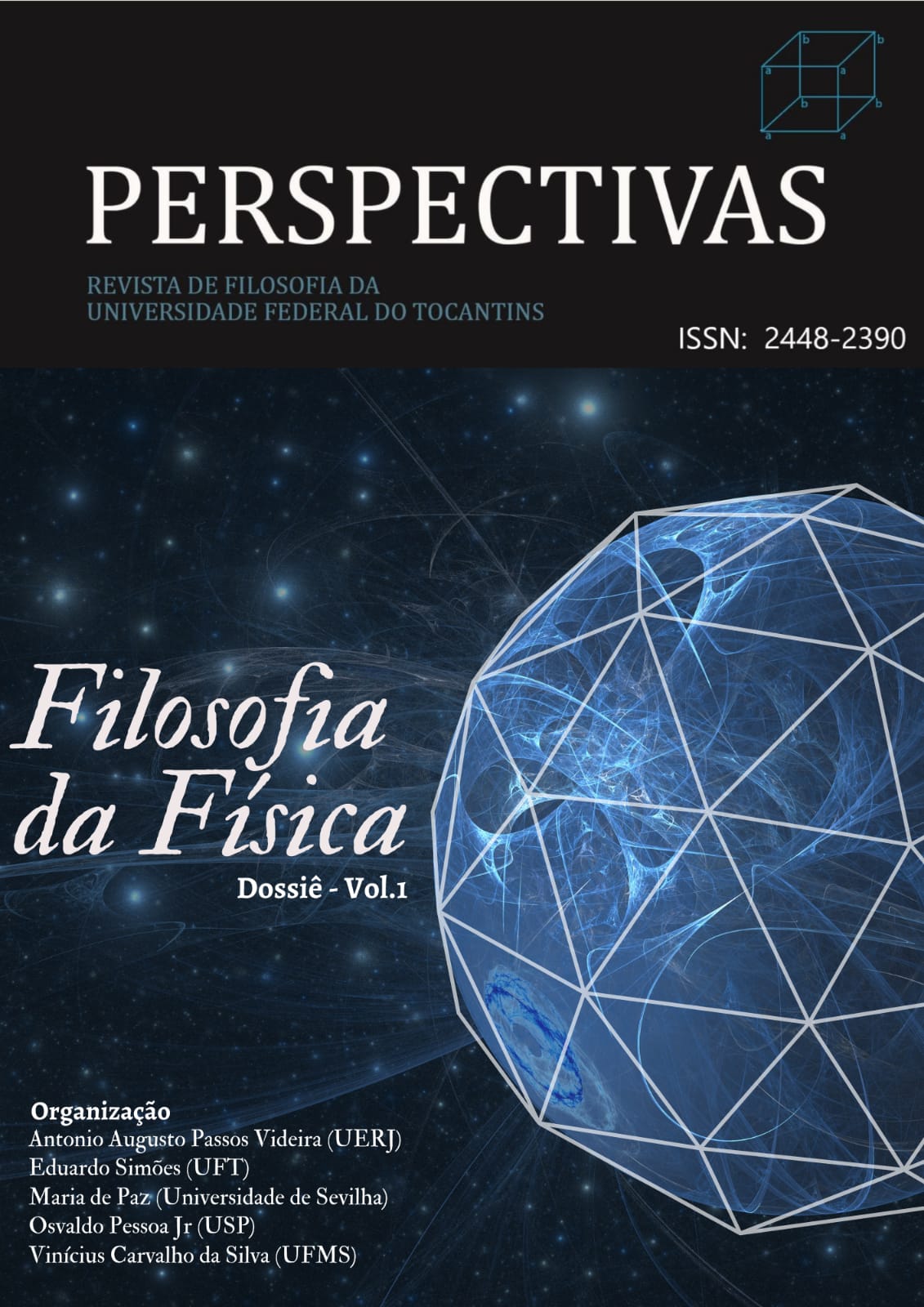Whitehead and the Lisbon School of Quantum Physics
DOI:
https://doi.org/10.20873/rpv7n2-42Abstract
In the controversy on the philosophical foundations of quantum mechanics Whitehead's philosophy of organism has an essential place. But its realistic position invalidates any attempt to relate it to the School of Copenhagen's “orthodox interpretation”. Unlike, the Eurhythmic Physics developed by the Lisbon School has notable theoretical tunings with Whitehead's philosophy. In both, the notion of passive matter disappears; entities are understood as ecstatic process of becoming arising from a continuum of potentialities; and they achieve physical persistence grace to a set of synergistic interactions among their own regimes of rhythmical activity. The principle of Eurhythmy proposed by Prof. Croca then appears as the hypothesis, in contemporary theoretical physics, corresponding to the organicist vision of a universe in a developmental process of realization of the abstract potentiality of all possible worlds: a universe that, as a living organism, should be described as guided by an immanent teleological principle.
References
BOHR, N. “Introductory survey to the Atomic Theory and the Description of Nature” (1929), “Maxwell and modern theoretical physics” (1931), in J. Kalckar, (Ed.), Niels Bohr Collected Work, Vol. 6: Founda-tions of Quantum Physics (1926-1932), Amsterdam: North-Holland 1985.
COUTURAT, L. “L'Algébre Universelle de M. Whithead”, «Rev. de Mét. et de Morale», VIII, 1900.
CROCA, J. R. “Hyperphysics – The Unification on Physics”, in J. R. Croca and J. E. F. Araújo, A New Vision of PHYSIS, Eurhythmy, Emergence and Nonlinearity, Lisbon: Center of Philosophy of Science at Uni-versity of Lisbon, 2010.
______., Silva, M. M. “Physics of the Becoming”, in J. R. Croca, P. Alves, M. Gatta , (Eds.), Space, Time and Becoming; Lisboa: Cátedra A Razão, Faculdade de Letras da Universidade de Lisboa, 2013.
______. Beyond Space and Chronological Time. The Physics of Becoming, Berlin: Lambert Academic Publish-ing, 2021.
HEISENBERG, W. Physics and Philosophy, London: George Allen & Unwin, 1971 (1958).
MAZZOLA, A. “La controversia sulla teoria dei quanti e la scuola di Lisbona”, in «Physis» (ISSN: 0031-9414), Casa Editrice Olschki of Florence - Domus Galilæeana of Pisa, Vol. 50, 2015, n. 1-2.
______. “Il manifesto di Lisbona: fisica quantistica e filosofia della natura”, in «Rocinante», n. 9, December 2016.
______. “Solidariedade do universo e evolução emergente na cosmologia de Whitehead e na Física Eurítmica”, in J.R. Croca, M. Gatta and P. Castro, (Eds.), Euritmia, Complexidade e Racionalidade, em uma perspectiva interdisciplinar, Lisboa: CFCUL, 2017.
______. “Whitehead and Eurhythmic Becoming. The Forgotten Ontology of Rhythms”, Noema, n. 11, 2020a;
______. “O realismo orgânico de A. N. Whitehead e a dádiva da tradição”, em Pompo, O. (org.) Ciência, Racionalidade e Politica. Ensaios (in)atuais, Óbidos: Aletheia, 2020b.
______. Ecstăsis Naturae. O valor euritmico do devir natural: Alfred North Whitehead e a Escola de Lisboa, Roma: Aracne, 2022.
MOREIRA, R. “The Crisis in Theoretical Physics; Science, Philosophy and Metaphysics”, in J. R. Croca and J. E. F. Araújo, A New Vision, 2010.
WHITEHEAD, A. N. An Inquiry Concerning the Principles of Natural Knowledge, London: Cambridge Univer-sity Press, 1919.
______. The Concept of Nature, Tarner Lectures 1919, London: Cambridge University Press, 1920.
______. Modes of Thought, New York: Capricorn Books, 1938.
______. Science and Modern World, New York: The Macmillan Company, 1948 (1925).
______. “On Mathematical Concepts of the Material World” (1905), in F.S.C. Northrup, M.W. Gross, (Eds.), Alfred North Whitehead, an Anthology, New York: The Macmillan Press, 1953.
______. Adventures of Ideas, New York: The Free Press, 1967 (1933).
______. Process and Reality, An Essay in Cosmology, Gifford Lectures 1927-28, New York: The Free Press, 1978.
Downloads
Published
Versions
- 2023-04-13 (2)
- 2023-01-08 (1)
How to Cite
Issue
Section
License
Copyright (c) 2023 Andrea Mazzola

This work is licensed under a Creative Commons Attribution 4.0 International License.
The Magazine is under the Creative Commons Attribution 4.0 International Public License (CC BY 4.0), according to which:
1) The authors retain the copyright and grant the journal the right of first publication, with the work simultaneously licensed under the Creative Commons Attribution which allows the sharing of articles published with the recognition of authorship and initial publication in this journal.
2) Authors are authorized to enter into additional contracts separately for distribution of the version of the work published in this journal, as long as there is recognition of authorship and initial publication in Perspectivas.
3) Authors are authorized and encouraged to disseminate published texts with proper references to the journal and its authors.





















